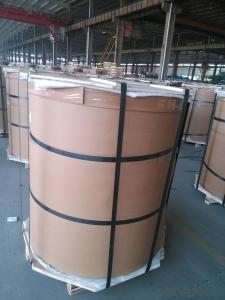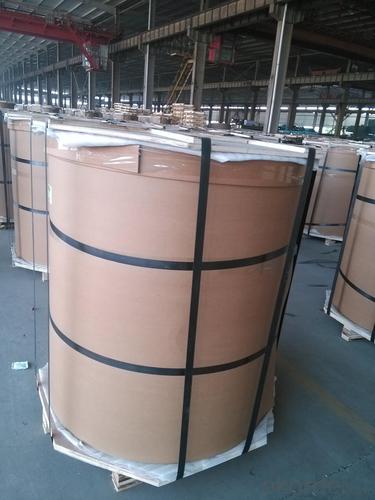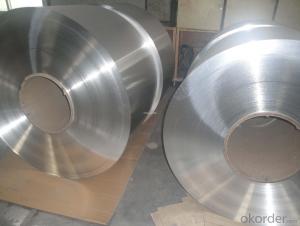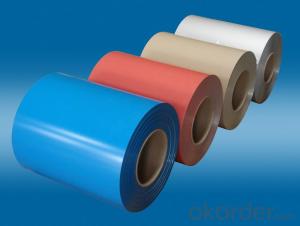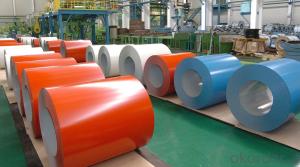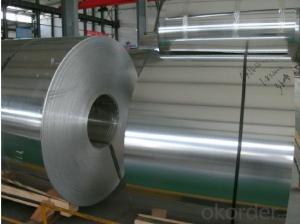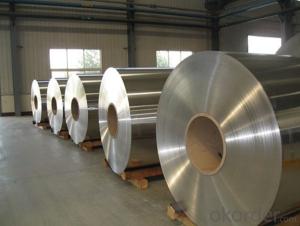Aluminum Coil 3003 C.C AA1100 Aluminum Coils Used as Building Material
- Loading Port:
- Shanghai
- Payment Terms:
- TT OR LC
- Min Order Qty:
- 3 m.t.
- Supply Capability:
- 10000 m.t./month
OKorder Service Pledge
OKorder Financial Service
You Might Also Like
Specification
1.Structure of C.C AA1100 Aluminum Coils used as BUiding Material Description
C.C AA1100 Aluminum Coils used as BUiding Material widly used in decoration field. For the painting, it depends on the using evironment. If you use in the open air, we recommend the PVDF coated aluminium coils. This kind of painting can last 15-20 years. If you use in the room, we recommend PE coated aluminium coils. The price is much more competitive.
Direct Continuous Aluminium Foil Stock in Coil is one semi-finished aluminium material. This strip can be rolled down to aluminium foil.The final thickess can be 5-20 microns. Aluminium foil is soft, ductile and with a silver-white luster which can be widely used in a large scare of fields.
2.Main Features of C.C AA1100 Aluminum Coils used as BUiding Material
a.Competitive price---We have our own mills and can produce mill finished aluminium coils, so we can control the production cost better.
b.Professional after-sale service---We have more than 15 years exportation experience and you need not worry about the exporation problems.
c.Fast delivery time---We can control the delivery time within 35 days.
3.C.C AA1100 Aluminum Coils used as BUiding Material Images
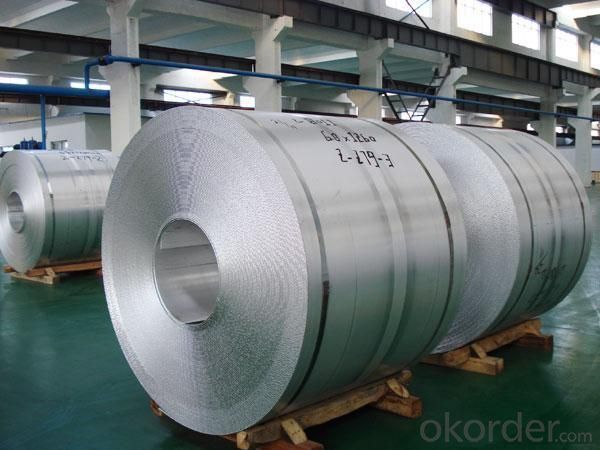
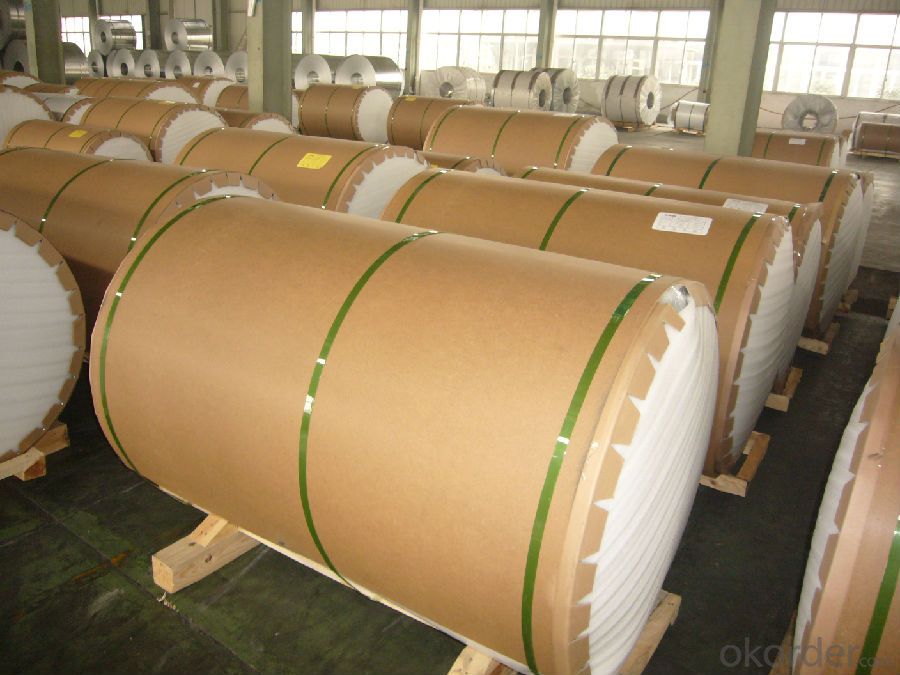
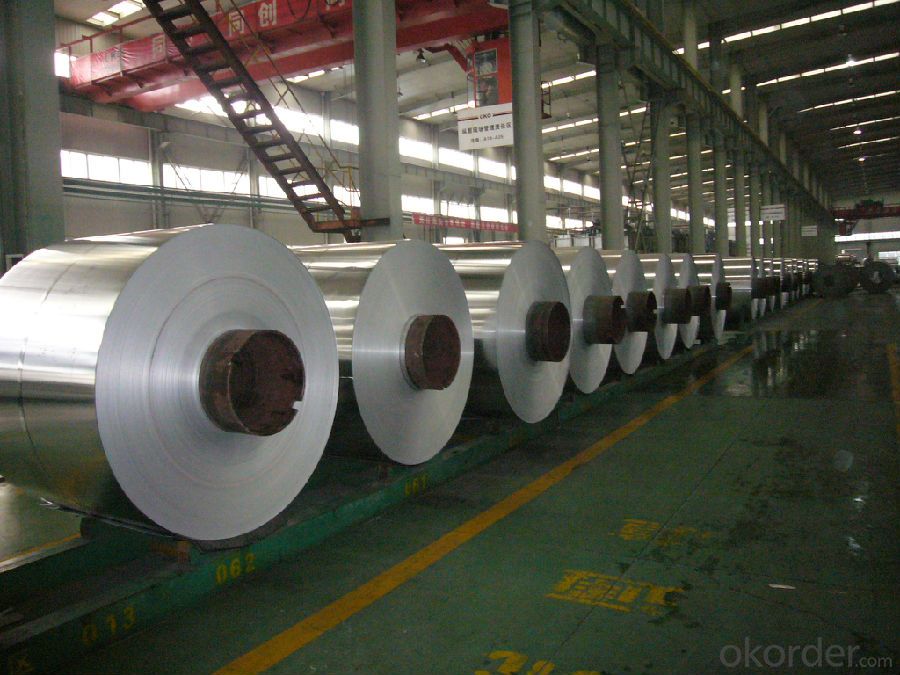
4.C.C AA1100 Aluminum Coils used as BUiding Material Specification
Alloy | AA1100 |
Temper | H14, H16, H18, H22, H24, H26, H32, O/F |
Thickness | 0.2mm -- 100mm |
Width | 30mm -- 1700mm |
Standard | GB/T 3880-2006,EN |
5. FAQ of C.C AA1100 Aluminum Coils used as BUiding Material
A.How to guarantee the quality?
Customers are welcome to our mill to visit and check the products. Besides, we can arrange a third party to test C.C AA1100 Aluminum Coils used as BUiding Material.
B.When will you deliver the products?
C.C AA1100 Aluminum Coils used as BUiding Material will be delivered within 35 days after receiving advanced payment or original L/C.
- Q: This question asks about potential health hazards associated with the use of aluminum coils.
- <p>There are concerns regarding the use of aluminum coils, particularly in cooking and food preparation, due to the potential for aluminum to leach into food. While aluminum is generally recognized as safe, excessive intake over a long period has been linked to various health issues, including neurological disorders and cognitive impairment. However, the risk is considered low for most people, as the body does not absorb a significant amount of aluminum from food or cookware. It's important to note that the scientific community has not reached a consensus on the extent of these risks, and further research is needed. To minimize potential exposure, it's recommended to use alternative cookware materials like stainless steel or cast iron, especially for acidic foods that may increase aluminum leaching.</p>
- Q: Can aluminum coils be used for heat recovery systems?
- Yes, aluminum coils can be used for heat recovery systems. Aluminum is a highly conductive material that can effectively transfer heat, making it suitable for heat recovery applications. Its lightweight nature also allows for easy installation and maintenance of the system.
- Q: This question asks if aluminum coils are susceptible to rusting.
- <p>Aluminum coil does not rust in the traditional sense. Instead, it forms a thin, protective layer of aluminum oxide when exposed to air, which prevents further corrosion. This oxide layer is different from rust, which is iron oxide. While aluminum can tarnish or corrode under certain conditions, such as exposure to certain chemicals or in extreme environments, it does not rust like iron or steel. Proper storage and handling can help maintain the integrity of aluminum coils and prevent unwanted reactions.</p>
- Q: Can aluminum coils be used in transformer windings?
- Transformer windings can indeed utilize aluminum coils. Aluminum is a widely employed material for transformer windings because its resistivity is low, conductivity is high, and it is cost-effective compared to copper. It possesses numerous advantages, including being lighter in weight, having superior thermal conductivity, and yielding lower manufacturing expenses. However, there are certain considerations to keep in mind when using aluminum coils in transformer windings. For instance, a larger cross-sectional area is necessary to compensate for its lower conductivity when compared to copper. Furthermore, special techniques may be required to prevent galvanic corrosion when aluminum comes into contact with other metals within the transformer. All in all, aluminum coils can serve as a viable substitute for copper coils in transformer windings, providing benefits in terms of efficiency and cost.
- Q: Can aluminum foil coil be stores for a long time?
- It is ok within one or two years, but for five or six years, it will be oxidized.
- Q: Are aluminum coils susceptible to warping or bending?
- Yes, aluminum coils are susceptible to warping or bending due to their relatively low strength and flexibility.
- Q: Which is more unhealthy the bleached parchment paper or the aluminum from the pan?
- If what you are cooking is going to stick to the foil pan, then use some parchment paper to prevent it. Otherwise, the purpose of foil pans are so you can use them and throw them away.
- Q: What are the potential safety hazards when using a soldering iron on copper or aluminum coils?
- <p>Using a soldering iron to solder copper or aluminum coils can pose safety risks. Copper and aluminum can react when joined, potentially leading to a galvanic corrosion. Additionally, the high heat from the soldering iron can cause the metal to expand or deform, especially if not handled properly. Always ensure proper ventilation to avoid inhaling fumes from the soldering process. Wear heat-resistant gloves and safety glasses to protect against burns and flying debris. Ensure the work area is clear of flammable materials to prevent fire hazards.</p>
- Q: Can aluminum coils be used for food storage containers?
- Yes, aluminum coils can be used for food storage containers. Aluminum is a popular choice for food storage containers due to its many beneficial properties. It is lightweight, durable, and has excellent thermal conductivity, meaning it can evenly distribute heat for efficient cooking or cooling. Additionally, aluminum is non-toxic, odorless, and resistant to corrosion, making it a safe option for storing food. It also provides an effective barrier against light, moisture, and oxygen, which helps to preserve the freshness and quality of the stored food. Overall, aluminum coils can be a reliable and practical choice for food storage containers.
- Q: How do aluminum coils compare to zinc coils in terms of durability?
- Aluminum coils generally have a higher durability compared to zinc coils. Aluminum is naturally resistant to corrosion and has a longer lifespan, making it a preferred choice for various applications. However, the specific durability may vary depending on the environment, maintenance, and specific usage conditions.
Send your message to us
Aluminum Coil 3003 C.C AA1100 Aluminum Coils Used as Building Material
- Loading Port:
- Shanghai
- Payment Terms:
- TT OR LC
- Min Order Qty:
- 3 m.t.
- Supply Capability:
- 10000 m.t./month
OKorder Service Pledge
OKorder Financial Service
Similar products
Hot products
Hot Searches
Related keywords
